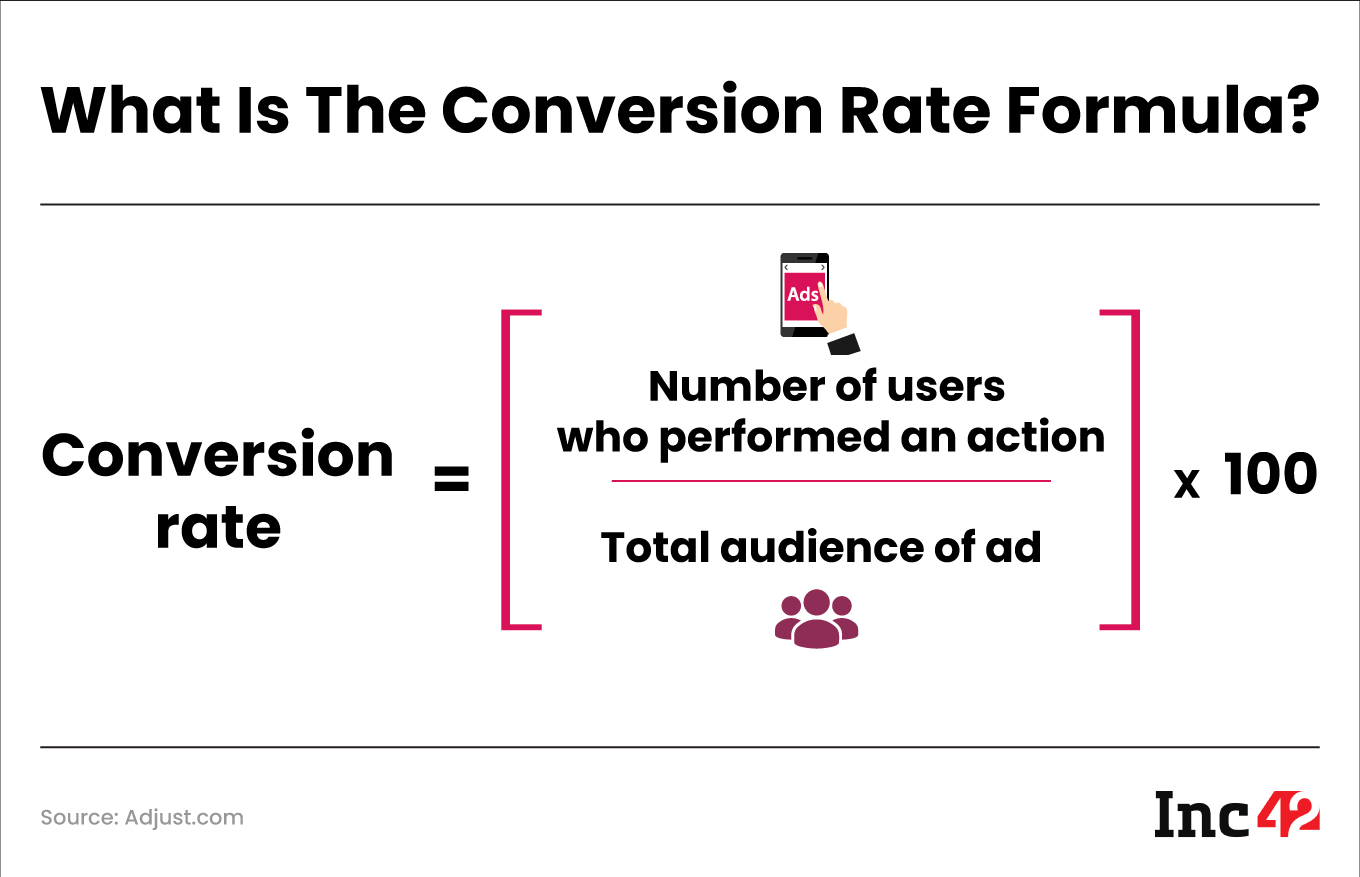What Is Conversion Rate?
A conversion rate indicates how individuals completed a desired action like clicking an ad on a website, in comparison to the total number of visitors.
In the context of digital marketing, ‘conversion’ refers to the action by the target audience in response to a specific call to action such as opening emails, registering on websites or making purchases.
These actions demonstrate engagement, acting as key performance metrics (KPI). Websites can store their information while they are in ‘action’ to improve targeting. This makes them closer to becoming customers. Therefore, it is crucial to structure websites and digital marketing materials to encourage these actions for greater success.
What Is The Formula To Calculate Conversion Rate?
To calculate the conversion rate, brands should examine how many times users performed the desired action, such as making a purchase, against the total ad views.
For instance, if there were 50 purchases out of 1,000 ad views, the formula would be 5% (50 ÷ 1,000 = 5%).
If different actions are being counted or every action is tracked, the rate could exceed 100%. Utilising conversion tracking assists in determining these rates and helps in making more informed advertising and digital marketing decisions.

What Is Conversion Rate Optimisation?
Conversion rate optimisation (CRO) means getting the users to take the desired actions on a website like getting them to click a CTA or buy a certain product/service. This helps in getting more potential customers. CRO can be achieved by making the website better, experimenting with different digital marketing strategies and improving how things happen step by step. When CRO is successful, brands get potential customers, generate more revenue and reduce customer acquisition costs.
What Is A Conversion Tracking Tool?
Conversion tracking is a tool that provides insights into how users respond to advertisements and digital marketing campaigns on websites. It tracks the actions people take after seeing an ad, such as making a purchase, subscribing to a newsletter, contacting a business, or downloading an app. When these actions align with a campaign’s goals then they are called conversions.
What Are The Benefits Of A Conversion Tracking Tool?
A conversion tracking tool helps in understanding:
- The effectiveness of keywords, ads, ad groups, and campaigns in encouraging meaningful customer interactions with users.
- It helps in understanding the return on investment (ROI) of ad spending.
- It helps track cross-device and cross-browser activities, allowing marketeers to track conversions that occur on different devices or browsers.
What Are The Challenges When Trying To Improve Conversion Rates?
Understanding common mistakes in conversion rates is important as different advertising platforms might define “impressions” in unique ways, affecting how you measure your ads’ visibility. For instance, Google counts impressions based on how often an ad is displayed, while Facebook counts each new instance an ad is seen on the screen.
Another misconception is assuming that a high conversion rate means a successful ad. Clicks don’t always translate to purchases. An ad might attract the wrong audience. If your ad gets many clicks but few purchases, it’s important to assess each step of the buying process to identify where potential customers lose interest.








